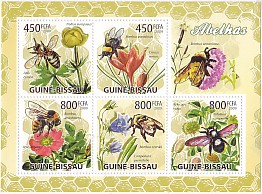A judge has ruled on Wednesday that the environmental association BUND (Friends of the Earth Germany) has a right to voice concerns over potential harms to bees from a neonicotinoid pesticide, Thiacloprid. The judge at the Duesseldorf Regional Court revoked a previous injunction in favour of BAYER CropScience. Thiacloprid is used on crops such as oilseed rape and apples and is sold to the public in garden bug-killing products. According to BUND, there is scientific evidence that the substance can make bees more likely to die from common diseases and can impair their navigational abilities. By printing a "not toxic to bees" logo on products containing Thiacloprid there arose "the suspicion of a deliberate deception of the consumer by BAYER." Friends of the Earth is now asking the European Commission to take a precautionary approach by suspending all uses of Thiacloprid and to review its safety. A scientific paper by Professor Randolf Menzel used in evidence by BUND, says: “Sublethal doses of neonicotinoids interfere selectively with the homing flight component based on this cognitive map memory, reducing the probability of successful returns to the hive. Chronic exposure to the neonicotinoid Thiacloprid reduces the attractiveness of a feeding site and the rate of recruitment." Findings by toxicologist Dr. Henk Tennekes suggest that bees are not the only victims: “The risks of the neonicotinoid insecticides Imidacloprid and Thiacloprid to arthropods in water and soil may be seriously underestimated. The acceptable limits are based mainly on short-term tests. If long-term studies were to be carried out, far lower concentrations may turn out to be hazardous. This explains why minute quantities of Imidacloprid may induce bee decline in the long run.”
For many years Neonicotinoids have been among BAYER's top-selling pesticides. In 2010, Imidacloprid sales were valued at US$ 820 million while Clothianidin sales were valued at US$ 260 million. Ever since BAYER declined to publish sales figures for any pesticide.
Source: www.cbgnetwork.org/3035.html, March 2015

- Log in to post comments
